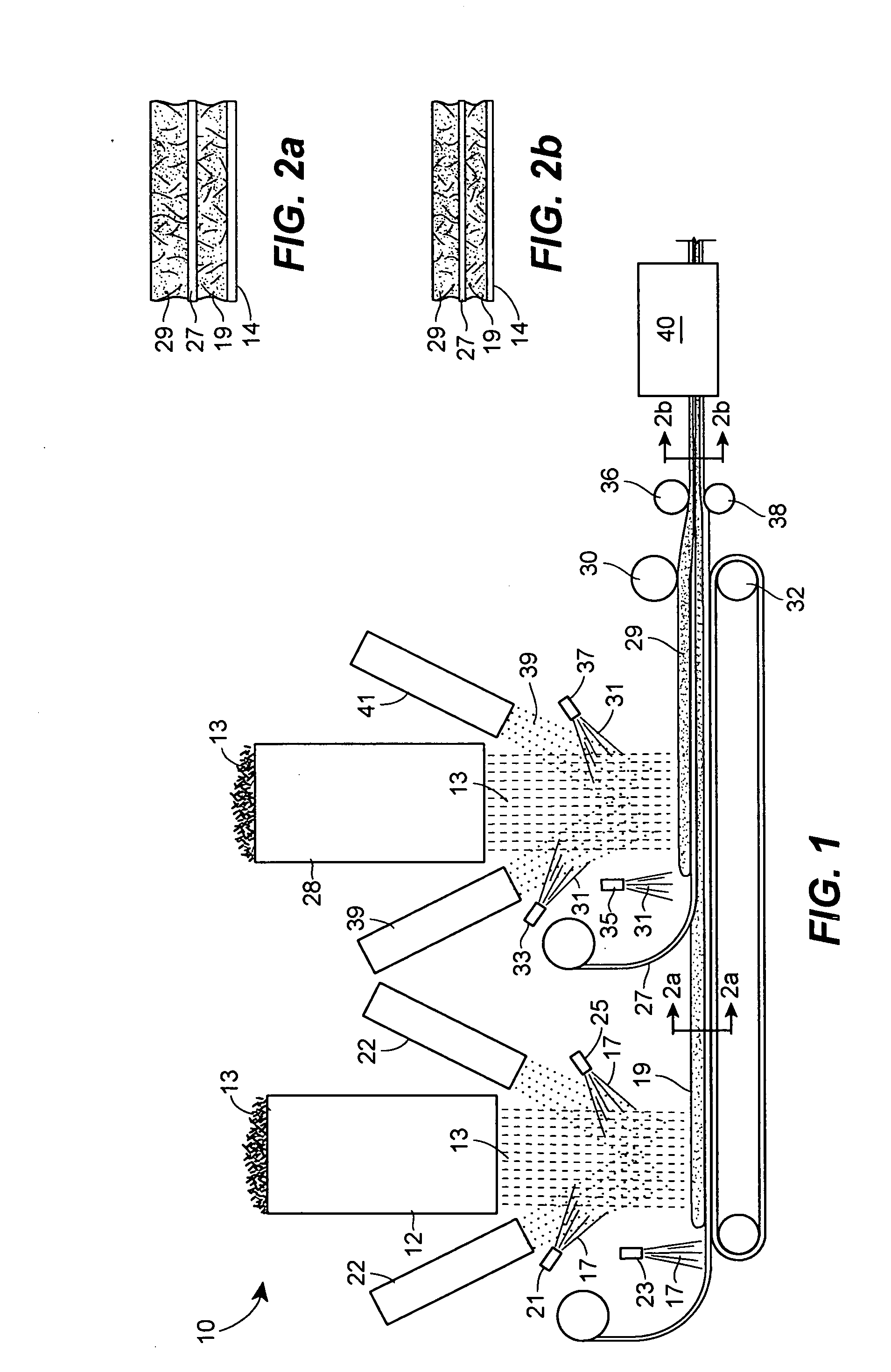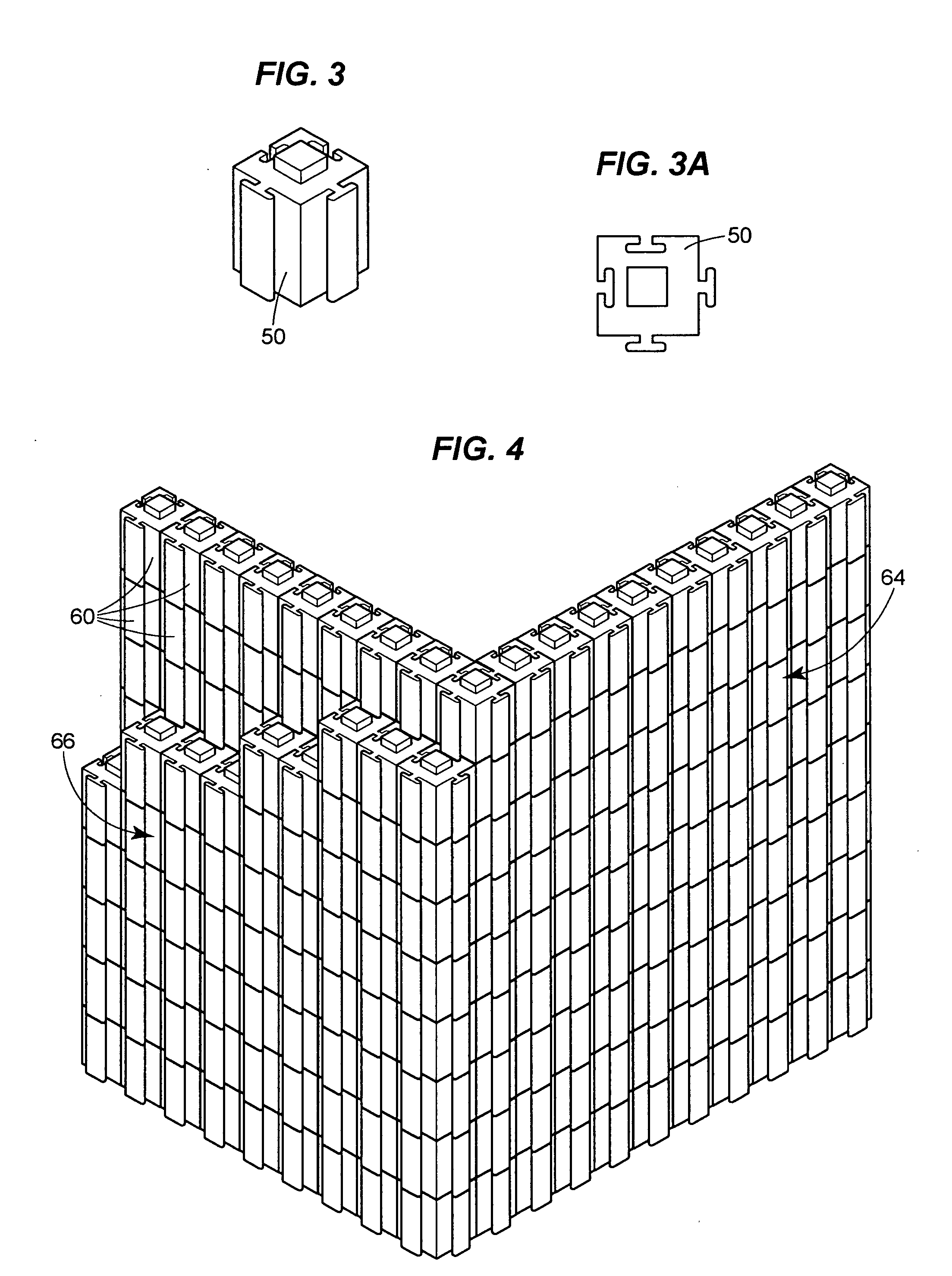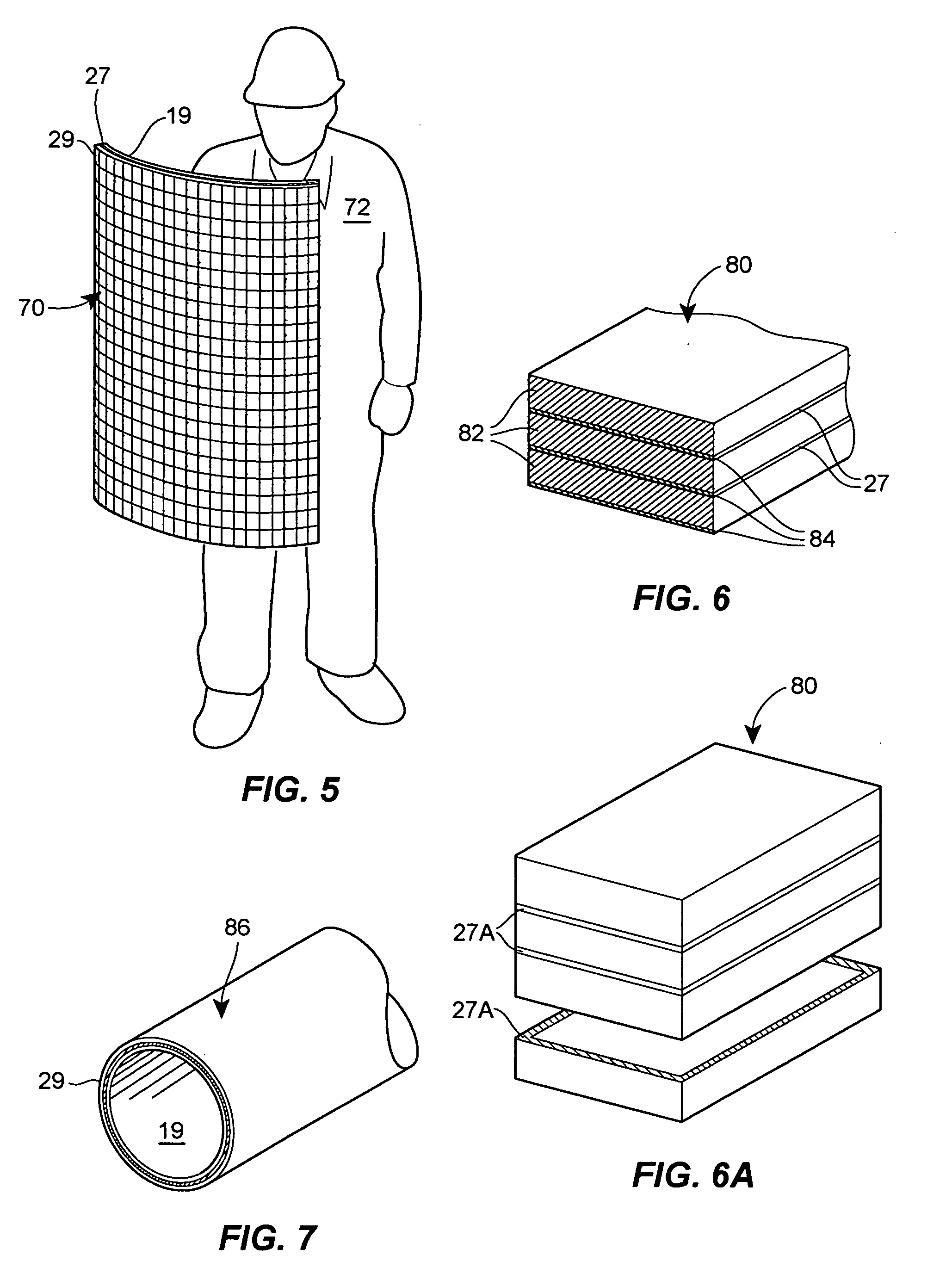Basalt particle-containing articles for ballistic shield mats/tiles/protective building components
a technology of ballistic shield mats/tiles/protective building components and base particles, which is applied in the field of base particle-containing composite compositions, can solve the problems of inability to protect against multiple projectiles, unsuitable armor for light vehicles such as automobiles, jeeps, light boats, etc., and achieve the effect of light weight and low bulk
- Summary
- Abstract
- Description
- Claims
- Application Information
AI Technical Summary
Benefits of technology
Problems solved by technology
Method used
Image
Examples
example 1
[0119] One manufacturing process for the manufacture of a handmade, basalt particle-containing plate or panel is as follows:
[0120] A homogeneous layer of basalt infused (20% by weight basalt powder) polyester resin was brushed onto a waxed, flat mold surface. One (1) layer of a 1½ oz. chopped strand fiberglass, non-woven mat having a silane binder was then applied over the basalt / resin composition. The following layers are alternated: (1) a non-woven fiberglass mat, (2) 24 oz. woven fiberglass roving, (3) non-woven fiberglass mat, (4) 24 oz. woven fiberglass roving, etc., with a coating of basalt / resin composition brushed onto each applied fiberglass layer. The first fiberglass layer is a mat to achieve a smooth surface finish. After applying five non-woven mats and three woven roving layers, or ⅜″ thickness, the laminated product (resin) is allowed to cure. The plate or sheet is then popped off the mold and trimmed with a jig saw or skill saw. The basalt / resin coating composition ...
example 2
Spaced, Multi-Layer Conduit Manufacturing
[0133] Spiral wrap a 6″ wide 10 mil. thick Mylar film over a rotating steel mandrel. Wrap a 2″ wide ½″ thick foam collar onto one end of the mandrel. Wet the mandrel with the basalt particle-containing resin with a mandrel brush. Spiral alternating layers of 1½ oz.×6″ wide non-woven chopped fiberglass strand mat and followed by 6″ wide×24 oz. woven fiberglass roving, wetting each layer with the basalt particle-containing resin. Leave approximately ⅛″ between edges of each 1½ oz. mat for stretching when wet. Roll each layer with a grooved aluminum roller as the mandrel turns to remove entrapped air. Start and finish with 1½ oz fiberglass non-woven mat for better, smoother surface finish. After five (5) layers of non-woven fiberglass mat and three (3) layers of woven fiberglass roving have been applied to the mandrel, let the mandrel continue to rotate for faster resin solvent evaporation until the resin reaches the gel stage, then turn off th...
PUM
| Property | Measurement | Unit |
|---|---|---|
| particle size | aaaaa | aaaaa |
| particle size | aaaaa | aaaaa |
| particle size | aaaaa | aaaaa |
Abstract
Description
Claims
Application Information
 Login to View More
Login to View More - R&D
- Intellectual Property
- Life Sciences
- Materials
- Tech Scout
- Unparalleled Data Quality
- Higher Quality Content
- 60% Fewer Hallucinations
Browse by: Latest US Patents, China's latest patents, Technical Efficacy Thesaurus, Application Domain, Technology Topic, Popular Technical Reports.
© 2025 PatSnap. All rights reserved.Legal|Privacy policy|Modern Slavery Act Transparency Statement|Sitemap|About US| Contact US: help@patsnap.com



